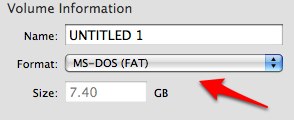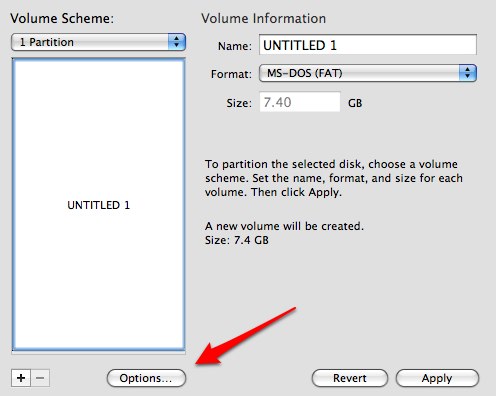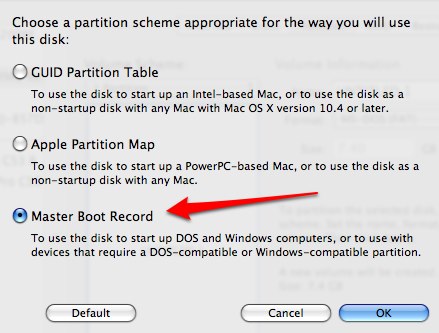-
"Everyone seems to be compiling lists of the best games of the decade, so here, with minimal special pleading or argumentation, is mine." Steven Poole's list is good, though two entries for the MGS series is one too many, IMHO. I'd swap one of them for something Harmonix-flavoured.
-
"This is a list of old game releases. These games were priced at nearly $50 a year ago, now probably a lot less. Why buy a new game when there are plenty of fun games out there worth renting or buying for less?" Games released twelve months ago this week, by Andre Torrez. He's right, you know – games don't have to be about nowness all the time.
-
"It’s pretty difficult to talk about what you’ve got wrong. When you’ve been working on something like School of Everything very intensely for two years you can’t really blame the mistakes on anybody else. But the truth is that we need to rethink because we haven’t managed to make the idea financially sustainable yet." And so they're doing out loud. It's a big move; I hope it works out OK for them, because they're definitely Good People.
-
"In the desert 100 miles northeast of Los Angeles is a suburb abandoned in advance of itself—the unfinished extension of a place called California City. Visible from above now are a series of badly paved streets carved into the dust and gravel, like some peculiarly American response to the Nazca Lines (or even the labyrinth at Chartres cathedral). The uninhabited street plan has become an abstract geoglyph—unintentional land art visible from airplanes—not a thriving community at all."
-
"On the contrary, the quick wins of some big ticket consulting sessions sell our discipline short by pretending that design is some magical elixir that can be poured into a situation and zammo everything is fixed up. Like accounting, medicine, and just about every other profession, design is a practice which is persistently useful at regular intervals. If anything, during this transitional period where business and government are slowly coming to terms with the potential yield of having design as an integral part of the conversation it behooves us to collectively seek longer engagements, not shorter." Some excellent stuff from Bryan Boyer.
-
"As a real-life pro skater, you might spend three hours out of every day practicing. Three hours trying new tricks, screwing up and the ground abruptly slipping out from under you. Imagine living your life in that fog of frustration, embarrassment, adrenaline and pride. Now let's imagine you got really sick, swallowed, like, nine Paracetamols and passed out in bed. THPS2 is what you'd dream." Quinns goes misty-eyed over THPS2, and he is right to do so. It was wonderful.
-
"It’s pretty common to want SQL queries against a particular table to always be sorted the same way, and is one of the reasons why I added the ordered scope to the utility scopes gem… Well now you can specify default ordering, and other scopes, in edge rails directly in your ActiveRecord model." Hurrah!
-
"With the recent addition of dynamic scopes, however, you now have a way to both quickly specify query logic and chain further conditions. The naming works in the same manner as dynamic finders and the chaining works in the same fashion as conventional named scopes." Ooh. New in Rails 2.3, and passed me by a little.
-
Really rather good series of tutorials on the FCE4 basics.
-
"So here's my theory: WoW doesn't resemble a film. It resembles, rather, a medieval cathedral. And a magnificent one: it is the Chartres of the video-game world. Like a cathedral, it is a supreme work of art that is, on a brick-by-brick basis, the creation of hundreds of artisans and craftsmen, many of whom will be long gone by the time it comes to completion; indeed, since WoW is in a state of permanent expansion, it may not ever be "complete". All those programmers are the modern-day equivalent of stonemasons, foundation-diggers and structural engineers."
-
"This December, the Eisner-winning artists behind such acclaimed projects as "Sugar Shock," "Umbrella Academy," and "BPRD: 1947" will present "Daytripper," their first original title from DC Comics' Vertigo imprint… The comic, which jumps around moments in the life of Brazilian aspiring novelist and newspaper obituary writer Brás de Oliva Domingos, will follow the main character as he explores and evaluates his own existence and attempts to discover the answer behind the mystery of the meaning of life itself." Oh. This sounds good!
-
"Flogr shows your pictures from flickr in a customizable photo portfolio interface which includes a main photo page with EXIF details and flickr user comments, a customizable thumbnails page of your recent work, a slideshow component to browse through thumbnails, a tag cloud page, and an about page that shows your flickr user profile. With flogr you can control which photos are shown by specifying the flickr tag(s) to include so you can show only your best photographs if you choose." Which is something I've been looking for for a while. Glad I didn't have to write it, now.
-
"NameChanger is designed for the sole purpose of renaming a list of files."
-
"Fortunately, modern displays can display characters that look exactly like this without special circuitry used in the original DEC terminals and there is free software that can be used to create a usable outline font out of a PNG image." Recreating VT220 terminal fonts in software, and from thence into Truetype.
-
"LimeChat is an IRC client for Mac OS X written on RubyCocoa." I did not know about this. It looks nice.
-
"Easily show multiple, overlapping events across calendar days and rows." Which is hard, and it is nice to know someone else has done the work.
-
"Do you like cities? Do you like architecture? Do you like speaking at conferences?" I think this has sewn up the 2010-11 circuit.
-
""Who amongst us will write the Building as Contacts and Related Goodness blog post?" It's worth remembering, I think, that he [Dan Catt] already has."
-
"Players stand in front of a green screen while the game films them and creates a music video background while they sing. Their performance is then emailed to them or burnt onto a DVD players can take home." Awesome. Unfortunately, the project has been canned. Still, it's worth watching the slightly cringey videos of the developers playing it, because it's a nifty bit of code.
-
"It all boils down to a Ruby script that runs on OS X only and uses OS X’s really awesome typography and subpixel antialiased font rendering. Why not tap into this to make those headline graphics? With Rubycocoa you can easily whip up a small app that draws some text, and save it into a PNG file." Um, blimey.
-
Icebergs and Shorelines; I love the Icebergs series particularly. What a rich page for a gallery.
-
"3. Take Notice: Be curious. Catch sight of the beautiful. Remark on the unusual. Notice the changing seasons. Savour the moment, whether you are on a train, eating lunch or talking to friends. Be aware of the world around you and what you are feeling. Reflecting on your experiences will help you appreciate what matters to you." All very good advice – and, frankly, what I knew already – but this one felt particularly appropriate, given Noticings.
-
This is a pretty good guide – made sense, got me up and running fast, and nice and clearly written.
-
"In a sense, a child, by definition, shrinks Scribblenauts’ scope: the game’s potential solutions are necessarily limited by vocabulary, so players with a smaller vocabulary have fewer options open to them. But, free of the dry, efficient logic of adulthood, a child’s imagination also opens the game up in ways beyond most adults’ reach." Simon makes a strong point about Scribblenauts.
-
"Yes kids, back in the Dark Ages, before the Coming of the Internet, your mums and dads used to use computers like this. Before your cloud-based storage and your Dropbox accounts and your Evernote applications and your mythical GDrive – before all of that, we used floppy disks." A lovely little video. I remember this well from the Mac Pluses at school, and even at seven or eight, it drove me nuts.
-
"On your computer exists your hobbies, your current and/or future career, and the rest of your daily life. You don’t own a snowboard, but you do have a blog, a Twitter, an RSS reader, and a pirated copy of Photoshop. You, my friend, need an Anything Bucket."
-
A good list of tips – lots of compiled stuff needs to be recompiled to x64, and this will be confusing. I am not upgrading quite yet.
-
"All yeahs in a baby are always the same height." Crazy markup preprocessor of the day, with suitably entertaining documentation.
-
"It seems to me that Transgaming have done more to hurt the Mac gaming world than anyone else. The idea that you can turn your product into a Mac game OVERNIGHT, without employing ANYONE WHO SEEMS TO CARE ABOUT THE PLATFORM is an absurd thing to peddle."
-
"Tig provides a simple command-line yet visual interface to Git." An explanation of what Tig does, and why you might find it useful.
-
"Tig is a git repository browser that additionally can act as a pager for output from various git commands."
-
Marvellous – case study of all the packaging concepts for the bonkers House Of The Dead: Overkill. Lots of gnarly, grindhouse-inspired graphic design going on here, and many things that are as good as the final version.
-
"Since I’m an OS X user, I decided to make the whole thing work on my system – Leopard 10.5.6 at the time of this writing. Here are the notes, mostly for my reference and because it might be also useful to others:" God yes; setting up cairo on my Mac proved a nightmare last year.
-
"…to prove I could, I made a small desktop application. It’s called Clarke. It’s really not very exciting — don’t get your hopes up. It’s just a toolbar thing that sits there, quietly, using Skyhook’s API to triangulate your location from nearby wifi points, pushing it to Fire Eagle. Yes, it’s YAFEU (Yet Another Fire Eagle Updater)." Tom makes Proper Software. He is smart.
-
"Cracking the bus network is really the key to most cities, and we’re nearly at the point of directed bus serendipity. In London, at least."
-
Joel Johnson rounds on Wired for the gulf between their online and printed formats; the comments thread turns into a much more rational, and reasonable, discussion from many Wired staff, past and present.
-
"Boxer plays MS-DOS games on your Mac. It’s based on the robust DOSBox emulator, with a lot of magic sprinkled on top. Run DOS programs from Finder. Wrap your games into tidy packages that launch like Mac apps. Painlessly install games from CD—then bundle the CD with your game so you don't even need it in the drive."
-
"The lesson to be learned here is that when something screws with your careful plans, you take control of that thing, warp it to your every demand, and channel it into a concentrated stream of Awesome. That is how you do PR." Pretty much. Valve have handled this brilliantly – the achievement they awarded themselves being the icing on the cake – and not only have they been on-brand for a savvy, internet-enabled company, they've also been spot on-brand for TF2.
-
"…this is a good time to consider zzt’s library – not because it’s changing, but because it’s probably complete. the long-running game archive z2 just declared zzt dead, and why not – it’s served its purpose: allowing people who aren’t programmers or digital artists an avenue to game creation before game maker or construct existed. now they do." ZZT must have been one of the first games I played, and I poked around its level editor. This retrospective both fascinates and arouses nostalgia in equal measures.
Formatting portable media to FAT on OSX
17 May 2009
Formatting media to FAT16/32 is something you often need to do – usually for storage media such as USB or Micro-SD that’s going to be used with embedded systems, such as MP3 players or homebrew cartirdges. All theese systems tend to assume you’re running a DOS file system.
As a Mac owner, that means you’re going to use Disk Utility to format your removable media. This isn’t so hard: you simply pick the “FAT” option from the format type in Disk Utility, right?

Almost. It turns out that most of the time, that’s not enough; that just specifies the way the partition is formatted. You’ve also got to make sure the way the partitions are described is set up correctly. And it turns out that, by default, Disk Utility likes to put FAT partitions into Apple-style boot records. That’s no good at all!
Lots of embedded devices don’t just expect FAT, they expect FAT on top of a traditional windows Master Boot Record. Once you combine the two, you’re more likely to have success. To do that, simply find the “options” dialogue in Disk Utility:

and then make sure you’ve chosen “MBR (Master Boot Record)”:

That’ll give you a Windows/DOS-style partition and partition map. Sorted!
This has taken me far, far, far too long to figure out. Given how long it took, I thought it only fair to share it.
-
Mike Darga's blog is a smart, insightful, data-driven look at game design, especially for MMOs. It's very good, and goes straight into my subscriptions.
-
"Clipstart complements your photo application to give you a place that is designed for home movies. Import your movies, tag, search, and upload with one click to Flickr and Vimeo. You can even quickly upload a trimmed portion of a movie without needing to save a new copy." Looks like an interesting alternative to iMovie for most of the uses I make of video.
-
Scans from a German magazine: messy, full of records, sometimes computers.
-
"Size has been one of the most popular themes in monster movies, especially those from my favorite era, the 1950s. The premise is invariably to take something out of its usual context–make people small or something else (gorillas, grasshoppers, amoebae, etc.) large–and then play with the consequences. However, Hollywood's approach to the concept has been, from a biologist's perspective, hopelessly naïve." Fantastic: transcripts of a series of lectures about the biology of B-Movie monsters; funny, accurate, informative.
-
Map of Shanghai, as Sim-City style rendered projection; is this useful? Or is this just a style of imagery computer users are used to?
-
"I find the watchclock fascinating not simply because it’s a kind of steampunk GPS, a wind-up mechanical location-awareness technology. I’m further fascinated at how this holistic system of watchclocks, keys, guards, and supervisors succeeded so completely in creating a method of behavioral control such that a human being’s movements can be precisely planned and executed, hour after hour and night after night, with such a high degree of reliability that almost a century goes by before anyone thinks of ways of improving the system as originally conceived." Fantastic.
-
"Sweet Sue's Canned Whole Chicken (without giblets) is an entire cooked chicken in a can (a big one)." For reference: I am not whole chicken-in-a-can hungry.